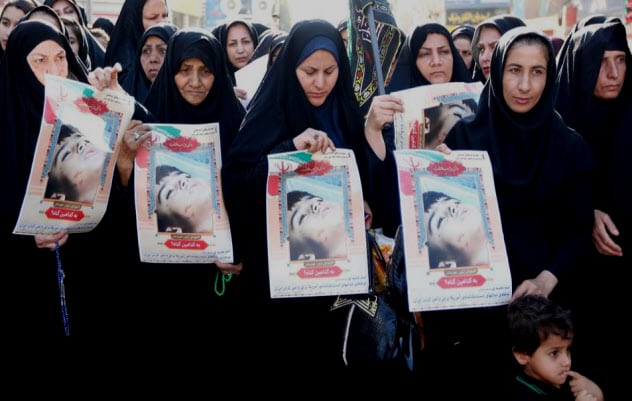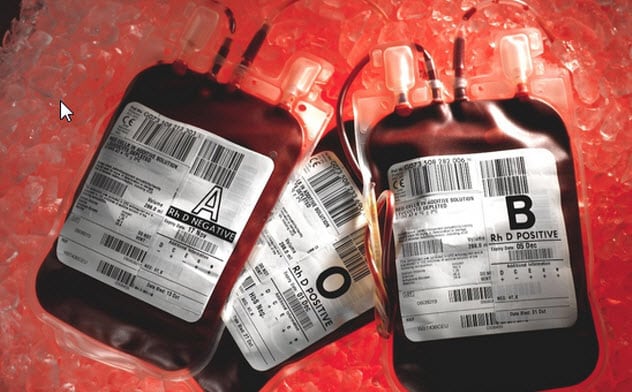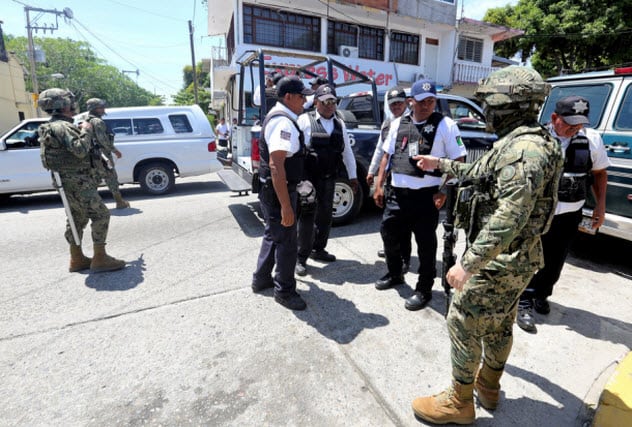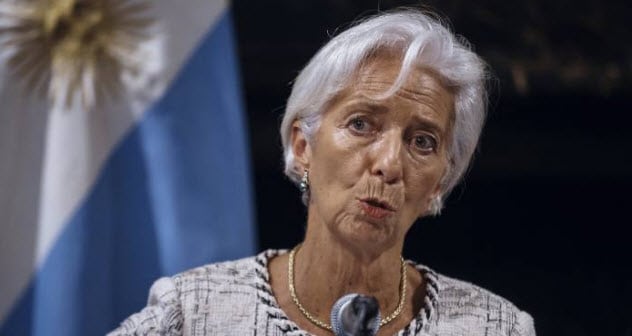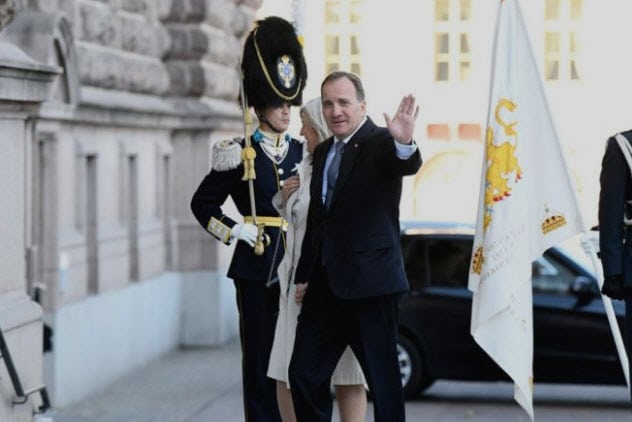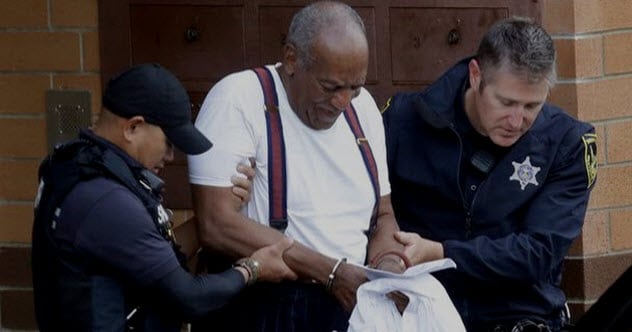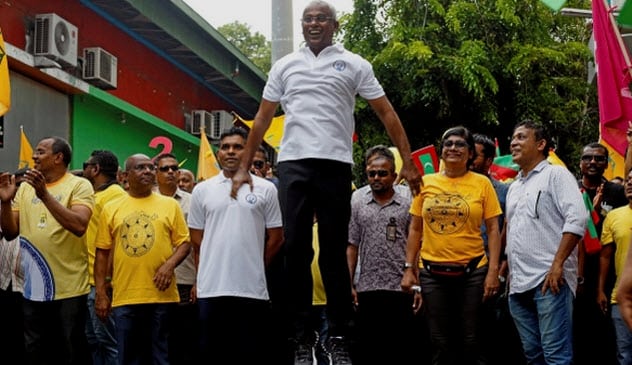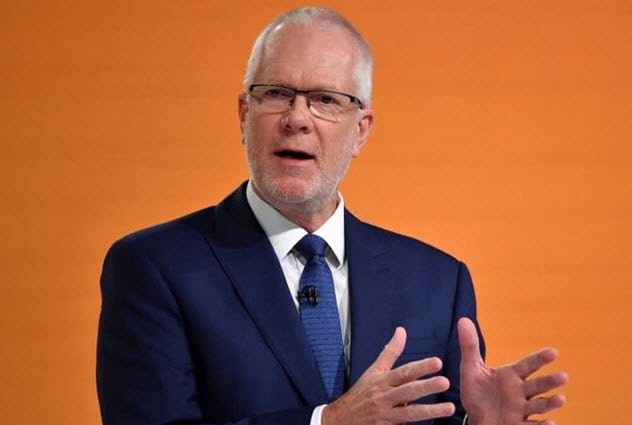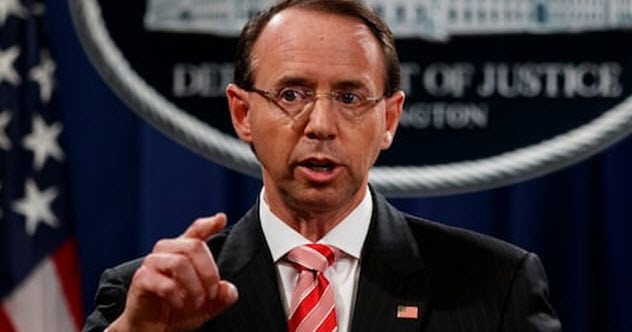This week, the biggest story in Washington, DC, was the continuing fallout from Dr. Christine Ford’s accusation that Supreme Court nominee Brett Kavanaugh had sexually assaulted her at a party. Thanks to the vagaries of writing schedules, the big Thursday hearing involving the two hadn’t wrapped by the time this column was filed. So we’ll discuss the consequences next week when things are clearer. In the meantime, settle yourselves in for a look at all the other stuff that was happening away from the Senate Judiciary Committee’s hearing room these last seven days.
10 ISIS Claimed Responsibility For A Deadly Attack In The Heart Of Iran
On Saturday, a small terrorist cell in Iran pulled off one of the most brazen attacks in the country’s history. At the height of a parade of the Revolutionary Guards—a kind of elite army that works alongside the main one—three gunmen attacked the city of Ahvaz. In the carnage that followed, 29 were killed and scores injured. While the main target was the Revolutionary Guards, only 10 of the victims were military men. The rest were civilians and journalists, prompting outrage in Iran. It was the first high-profile attack in Iran since ISIS killed 23 in an attack on the parliament in 2017 and the deadliest overall attack in eight years. Speaking of ISIS, the group quickly claimed responsibility for this attack. However, there’s some confusion as to whether they’re telling the truth. Arab separatist group Ahvaz National Resistance also released a statement saying they were behind the carnage.[1]
9 The UK’s National Health Service Was Rocked By A Contaminated Blood Scandal
On Monday, the UK government opened an inquiry into one of the biggest scandals to ever hit Britain’s National Health Service (NHS). Through the 1970s and into the 1980s, thousands of men, women, and children were given blood that had been infected by either HIV or hepatitis. Shockingly, although the scandal has been the subject of public debate since at least 1990, it is only now being investigated. The numbers involved truly deserve the description “mind-blowing.” When the inquiry was announced in 2017, it was estimated that 7,500 people had been infected and as many as 3,000 had died. On Monday, the number of infected was revised sharply upward to over 25,000. The human suffering involved is incalculable. At the moment, we don’t know the scale of the cover-up or the role of US companies. (The infected blood was originally sourced from America.) But expect some shocking revelations when the inquiry begins in force next April. It is projected to last 15 months.[2]
8 Mexico Disarmed Acapulco’s Entire Police Force
For the past few years, Acapulco has frequently ranked as one of the deadliest cities in the world. The spiraling of Mexico’s war on drugs into a murderous free-for-all has led to the former resort town becoming a no-go area patrolled by vast gangs of cops in military vehicles.[3] At least, that was the case. This week, politicians in Guerrero state took the unprecedented step of arresting and disarming Acapulco’s entire police force. The reason they gave was a depressingly familiar one. They feared local law enforcement had become so corrupted by drug dealers that they were effectively acting as another branch of the cartels. Acapulco will now be policed by a combination of state police and the Mexican military while thorough checks are undertaken of all the arrested Acapulco officers. Once again, it looks almost as if Mexico’s war on drugs has become effectively unwinnable.
7 Argentina Received The Largest IMF Bailout In History
Argentina has a long and unhappy history with financial institutions. Its debt default in 2001 remains one of the largest in history and triggered such chaos that the initials I, M, and F can still cause outcry among some parts of the population. So you can imagine how this week’s news went down. On Wednesday, the IMF announced that it would increase the amount of money it was pumping into the Latin American nation’s bailout by $7.1 billion. The extra injection of cash makes this the largest bailout in IMF history.[4] This isn’t the largest bailout in total. Greece’s multiple bailouts over the last decade eventually totaled €288.7 billion. Against that, Argentina’s current mess looks almost problem free. But the IMF was a junior partner in the Greece crisis, with the European Central Bank stumping up most of the cash. With Argentina, it is the nation’s sole line of credit. President Mauricio Macri has promised to balance the budget by next year, but who knows if he’ll succeed? Argentina has been hit hard this year by a run on the peso, soaring inflation, and a one-month contraction of the sort not seen since the economic crisis.
6 Sweden’s PM Was Booted From Office
From the moment the results came in, Stefan Lofven was a dead man walking. The prime minister of Sweden and leader of the center-left bloc, Lofven was at the heart of the general catastrophe that was the country’s recent election. Although his bloc and the center-right managed to keep the ultraright populist Sweden Democrats (SD) from their goal of 20 percent of the vote (something many analysts had predicted happening), Lofven also led his allies in an abysmal underperformance. Hated on the right, despised by the center, and a disappointment to the left, Lofven had to go.[5] This week, he did. On Tuesday, he lost a no-confidence vote in parliament 204–142. The hunt is now on for Sweden’s next leader. Whoever gets the job, it may turn out to be a poisoned chalice. Lofven’s center-left bloc has vowed to vote down a minority government led by the center-right bloc. Additionally, two parties in the center-right bloc have said that they will kamikaze their own side if they try to govern in hand with the SD. Sweden may yet face fresh elections in the near future.
5 A Dark Child Protection Scandal Rocked Norway
Just a stone’s throw from the political drama unfolding in Sweden, Norway’s own scandal this week was far darker than anything happening in Stockholm. Back in April, a prominent child psychiatrist (who can’t be named for legal reasons) appeared in an Oslo court on charges of downloading child pornography. He admitted to viewing images as obscene as the sexual abuse of a baby and said he’d been downloading such images for 20 years. There was one extremely big problem with this. The man had been intimately involved with Norway’s child protection services for over a decade. In that time, he’d been involved in the decision to split hundreds of kids from their families.[6] Norway’s extremely stringent child protection laws have been raising alarm bells for some time now. In 2013, for example, Inez Arnesen had four of her children taken away after she was accused of using physical force on them. When a court acquitted her in 2015, two of her children nonetheless remained in care. It has since been revealed that the pedophile psychiatrist was instrumental in keeping Arnesen from being reunited with all her children. This week, following a sustained campaign by the BBC, Norway finally agreed to review all cases involving this psychiatrist. There is now the potential for families to discover that they were victimized by the system and kept from their children just to satisfy a pedophile’s sadistic whims.
4 Bill Cosby Began His Prison Sentence
Just a decade ago, it would have seemed like a tasteless joke from a sleazy shock movie. Bill Cosby, the personification of fatherhood for anyone who grew up in the ’80s or ’90s, was sent to jail for the rape of Andrea Constand. It followed a sensational four years where accusations against the comedian dripped in until 60 women had accused him of sexual assault. Due to statute of limitation laws, Constand was the only one still able to bring her story to trial. This week, that trial resulted in the biggest name conviction in a sex assault case since #MeToo (although most of Cosby’s accusers came forward before the movement began). The man once called “America’s Dad” will now face 3–10 years in prison, an astounding fall from grace.[7] Cosby’s defense also plumbed new depths during the trial by accusing both the media and his accusers of being part of a vast racist conspiracy against prominent black men. Playing with fire, much?
3 The Maldives’ Unexpected Election Result Triggered Celebration And Turmoil
For an election that was supposed to be a rubber-stamping exercise, Sunday’s vote in the Maldives sure caused an upset. When burgeoning autocrat Abdulla Yameen announced the elections, it was assumed that he was guaranteed to win. Opposition leaders were locked up or fled into self-imposed exile. Opposition offices were raided by police. Meanwhile, fat bribes were thrown at the electorate to make sure they voted for the very man who wanted to take their democracy away. In short, it looked like a stitch up. Until the results were announced. At that point, it became clear that Yameen had lost spectacularly to a mild-mannered nobody known as Ibrahim Mohamed Solih. This was unexpected, to say the least. Yameen was meant to be the guy who had killed Maldivian democracy. He had his own half brother locked up on terrorism charges for not supporting him. Yameen destroyed free expression and jailed judges who disagreed with him. Yet, on Monday, he was forced to concede. The Maldives now has another shot at democracy.[8] In another stunning twist, the army vowed to uphold the election result on Thursday, should Yameen try to challenge or annul it. It looks like the wannabe dictator’s time is over.
2 Australia’s ABC Was Caught In A Shocking Political Scandal
For many years, Australia’s ruling conservatives have accused the Australian Broadcasting Corporation (ABC—not to be confused with its American counterpart) of bias. Little did anyone realize that this was intended as an ironic joke. This week, ABC’s Chairman Justin Milne was forced to step down. His resignation came after it was revealed that he’d tried to have a senior journalist fired for reporting news the government didn’t like. The revelation came last Thursday when The Sydney Morning Herald published an email from Milne which told a colleague to “get rid of” Emma Alberici for criticizing government policy. Since ABC is both one of Australia’s biggest networks and legally required to be politically neutral, this sent shock waves through the media.[9] It also sent Prime Minister Scott Morrison’s new government into defensive mode as Malcolm Turnbull, his predecessor from the same party, was accused of trying to influence the ABC. It didn’t help the optics that Turnbull and Milne are personal friends. So far, the scandal shows no sign of dying down. More Milne emails have since been published, showing him targeting at least one other journalist for holding the government’s feet to the fire.
1 Rod Rosenstein Briefly Became The Center Of A Political Firestorm
For less than 30 minutes, it was the biggest story of the month. On Monday, US media went into overdrive as reports came flooding through that Deputy Attorney General Rod Rosenstein—the guy overseeing Robert Mueller’s investigation—had been fired. Over the weekend, The New York Times published leaked minutes from a meeting in which Rosenstein apparently called on members of the government to secretly record conversations with President Trump and to discuss using the 25th Amendment to remove him from office. Invoking the 25th Amendment would allow the vice president to take over if the president is incapacitated. Naturally, it seemed like the White House was gonna fire him. Given the potential impact that could have on the Mueller investigation, the papers went ballistic. At least, they did until reports started coming in that Rosenstein hadn’t actually been fired. Instead, he was going to meet Trump face-to-face on Thursday to discuss his future. In light of the Kavanaugh/Ford testimony taking place that same day, the meeting was subsequently delayed. At the time of this writing, Rosenstein is still in his job. Normally, the fate of someone who had said unkind things about his boss (although Rosenstein claims the report was fake news) wouldn’t be of much interest. But the Mueller investigation certainly is and Rosenstein is the guy currently keeping it moving. Were he to go, it’s possible—but not certain—that his successor might shut down the whole thing. Whether you think Mueller is conducting a witch hunt, finding the truth, or secretly working with Trump, it’s hard to deny that closing down his investigation at this juncture would trigger an apocalyptic political battle.[10] Happily, that hasn’t happened. For now, Rosenstein remains in place. Although it hasn’t been reported much—if at all—in the mainstream media, news has been dripping out for months that Rosenstein appears to be seriously conflicted in the Russia investigation. How long he will be in the Justice Department is anyone’s guess.
